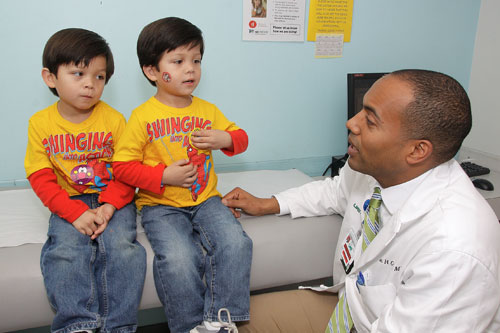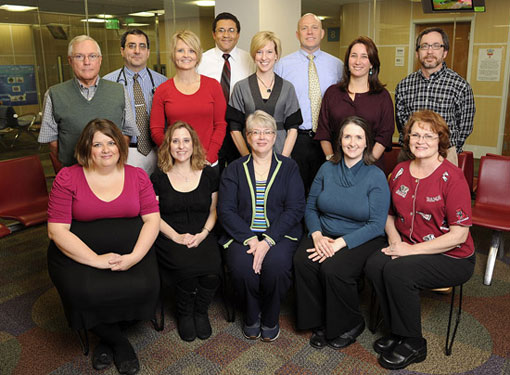
Program Highlights
The pediatric renal transplant program at UAB has been in existence since the inception of the adult transplant program in 1968. The pediatric liver transplant program was initiated in 1993. The pediatric transplant programs average 35 transplants a year with over 500 pediatric renal transplants performed since 1968 and 150 liver transplants since the inception of the pediatric liver program. Our referral base is primarily the southeastern United States. The program is a join effort by the University of Alabama Hospital and the Children's Hospital of Alabama.
Outcomes
The pediatric liver transplant program has 100% survival over the last three years. Renal transplant graft and patient survival is equal or better as reported in the Scientific Registry of Transplant Recipients.
Scientific Registry of Transplant Recipients - kidney (see table 10 for pediatric specific data)
Scientific Registry of Transplant Recipients - liver (see table 10 for pediatric specific data)
Patient-Centered Approach
Patients are evaluated by a multi-disciplinary team including pediatric nephrologists, pediatric renal coordinators, pediatric gastroenterologist specializing in hepatology, pediatric liver coordinators, and other medical pediatric specialist as necessary. Most evaluations are done as outpatients over a 2-3 day period of time at the Children's Hospital Transplant Clinic. If an in-patient evaluation is necessary the patient is admitted to the Nephrology or Gastrointestinal in-patient service at the Children's Hospital. Dedicated specialists in Social Work, Nutrition, Physical Therapy and Child Life are involved with the transplant process starting from the initial evaluation.

Facilities
The pediatric transplant programs are a joint effort by both the University of Alabama Hospital and the Children's Hospital of Alabama. Currently the transplant procedure is performed at the University Hospital utilizing dedicated anesthesia for the pediatric transplant recipients. The Critical Care team from Children's Hospital provides care in the Intensive care at both the University Hospital and Children's Hospital. Patients are housed on a dedicated floor (7NW) at Children's Hospital for both pre and post transplant care. Hemodialysis, if needed, is provided by the Children's Hospital dialysis unit which has 6 beds for both in and outpatient dialysis. CVVHD and plasmapheresis are available if needed. Transplant Clinic is held once a week at the outpatient clinic in the Children's Hospital. The new Benjamin Russell Children's Hospital to be completed in 2011 will have new dedicated space for the abdominal transplant programs. Housing is available both pre and post transplant at the newly constructed Ronald MacDonald House for patients and their families.